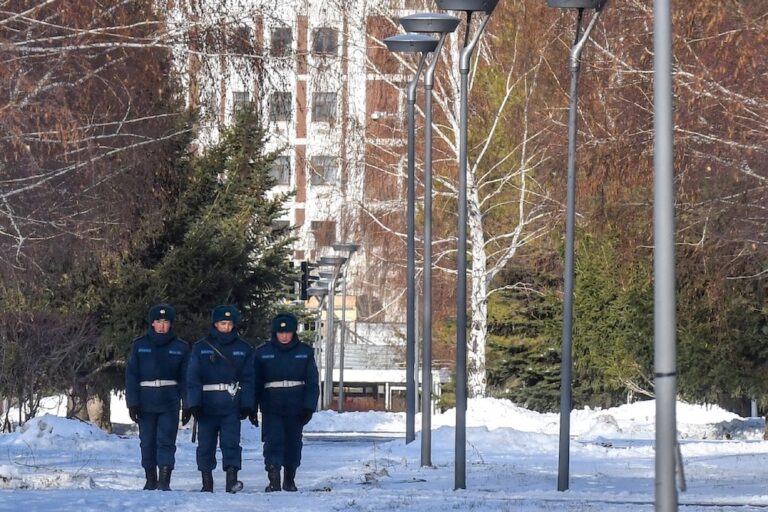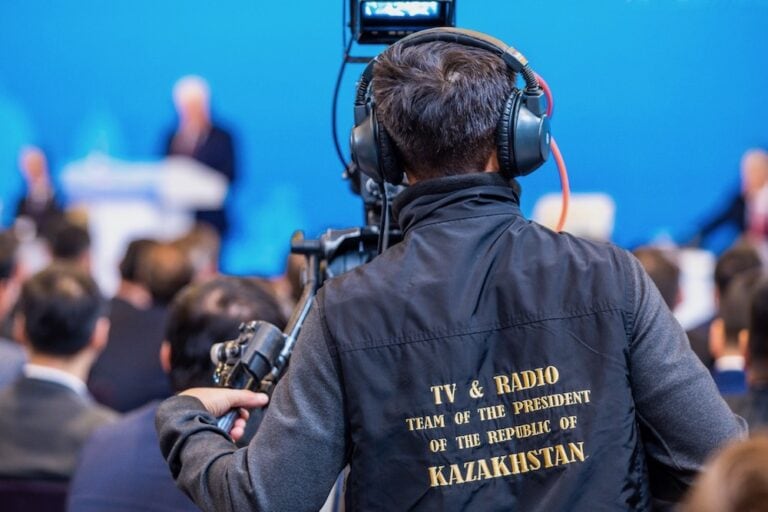(Adil Soz/IFEX) – On 16 January 2006, the opposition newspapers “Epoha”, “Svoboda Slova”, “Azat” and others were prevented from publishing their current editions, after the Dauyr printing company abruptly terminated their contracts. The newspapers are looking for an alternative way to print. Dauyr officials explained their decision by proclaiming their need to re-equip the company, […]
(Adil Soz/IFEX) – On 16 January 2006, the opposition newspapers “Epoha”, “Svoboda Slova”, “Azat” and others were prevented from publishing their current editions, after the Dauyr printing company abruptly terminated their contracts. The newspapers are looking for an alternative way to print.
Dauyr officials explained their decision by proclaiming their need to re-equip the company, but the editors of the affected newspapers believe this to be a false excuse and fear that the decision was politically motivated.
In September 2005, another printing press, Vremya Print, similarly terminated its contracts to print a number of opposition newspapers without any explanation. In reaction, editors of the opposition papers “Epoha”, “Svoboda Slova”, “Apta.kz”, “Azat”, “Juma-Times” and “Soz” went on a hunger strike, saying they would continue until the company resumed printing (see IFEX alert of 27 September 2005). A few days later, the Dauyr printing company, run by Svetlana Nazarbayeva, announced its willingness to print the newspapers.
Subsequently, the editions of several opposition newspapers were seized by the police outside the printing company. These police seizures gave journalists reason to believe that the police have access to the newspapers before they are distributed.


